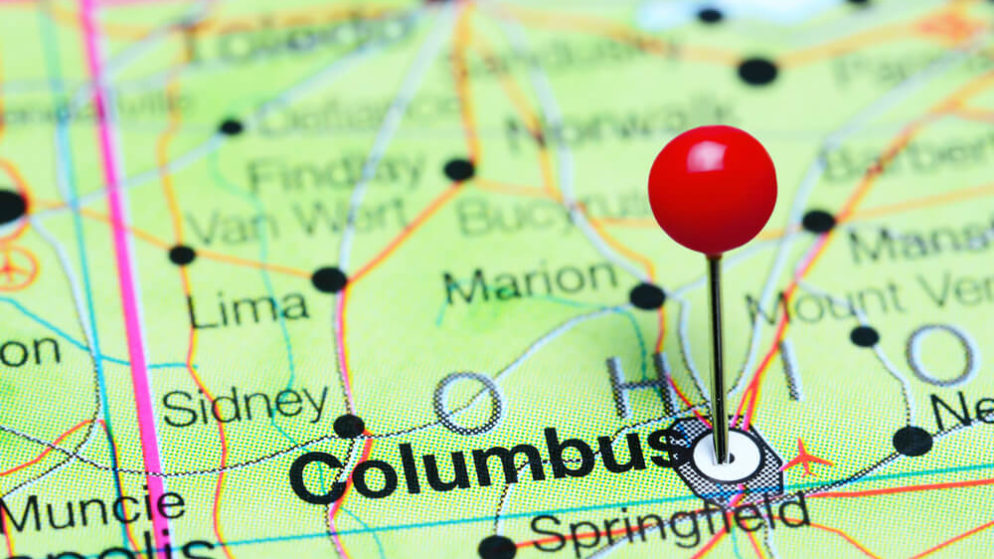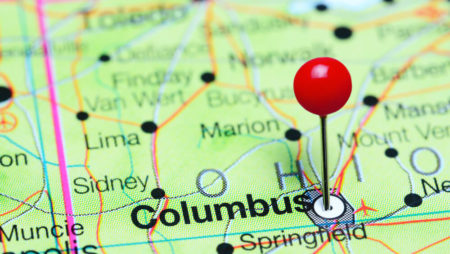

All Ohio casinos have been closed since the coronavirus shutdowns, but the business has been booming in one segment of the gaming industry. While casinos in Pennsylvania also remain closed, online gambling is keeping the industry there afloat. Within months, Michigan will also be reaping the benefits of online gambling.
Online gambling with casino-style games is going a step further than sports betting, which is already legal in many states. However, two years after the U.S. Supreme Court cleared the way, the state of Ohio still debating whether to legalizing sports betting.
What we cover
More States Approve Online and Mobile Gambling
Michigan is putting the final touches on the laws approved last year allowing a dozen tribal casinos and three Detroit casinos to offer both sports betting and other casino games online.
Pennsylvania launched online gambling in July, and players within the state’s borders can place bets through any one of eight casinos, said Doug Harbach, spokesman for the Pennsylvania Gaming Control Board. Games you can play in the Keystone State range from slots to poker games with other players, with the house taking a cut.
“As you can imagine, there has been a big increase of online gambling since the casinos closed,” Harbach said. Online gaming revenue was up 73% in April over March. Revenue from online slots more than doubled. Pennsylvania’s May data has not yet been released.
Ohio Casinos the Only Place to Place a Bet in the State
In March, Michigan joined Ohio’s other neighbors, Indiana, Pennsylvania, and West Virginia, to offer sports betting; unfortunately, Ohio’s sports betting is only in-person at one of Ohio casinos, and the COVID-19 shutdown also shut down in-person betting.
The regulations for Michigan online gambling, for both sports betting and casino games, are being worked out, said Dave Murley, deputy director of the Michigan Gaming Control Board.
But in Ohio, there has only been very slow progress in the legalization of sports betting, and no talk other forms of online gambling, like casino games.
The Ohio House has approved the Ohio Lottery Commission to oversee sports betting in the state; the Lottery Commission also regulates Ohio’s seven racinos, which operate video lottery kiosks.
However, that legislation conflicts with an Ohio Senate bill, that would place sports betting under the control of the Ohio Casinos Control Commission; that commission oversees Ohio’s four full-service casinos in Columbus, Cleveland, Cincinnati, and Toledo. Both the Senate and House bills would allow for mobile sports betting.
In Ohio, the separate proposals call for different tax rates. The House proposes a 10% tax rate, while the Senate proposes a 6.25% tax rate for sports betting. The lottery fee for slots at the racinos is 33.5% and there is a 33% tax on both slots and table games at the Ohio casinos.
Sports betting is now legal in at least 20 states, including in Ohio casinos. Chris Altruda, a sports betting analyst with PennBets.com, thinks that number could reach at least 25 states within a year. Florida is among the states that are very close to expanding gambling options in the state. An expanded gambling bill is also under consideration in the Kentucky legislature.
Online Casino Games are the Future
Online casino games are a step beyond simply adding sports wagers. “It’s become a new aspect of the equation,” Altruda said. “Currently there are only three states where you can gamble that, Pennsylvania, New Jersey, and Delaware.”
West Virginia has also passed legislation legalizing online gaming, but the regulations concerning online gambling are still going through the approval process.
In Michigan, sports betting was determined to be legal under existing gambling laws, but the sports betting industry sought a lower tax rate than those for casino games. A typical tax rate across the country for sports betting is around 10% on what the house makes, after winnings are paid out.
On March 11, the Detroit casinos began taking sports bets in person as the NCAA basketball tournament was about to begin; sadly, that was canceled as the coronavirus crisis hit.
Since then, Michigan state lawmakers have continued to work towards finalizing the rules for online gambling. This includes taxes and state rules for the 12 Indian tribes, who operate a combined 24 physical casinos in Michigan which are excluded from state regulation.
Michigan officials are “hopeful” to fully launch in October or November, but a more conservative estimate is an early 2012 launch for online gambling in Michigan.
Hopefully, soon, Ohio casinos won’t be the only place you can place a bet in the state. Right now, the sportsbooks at the 11 Ohio casinos are the only game in town. But that could change very soon.





